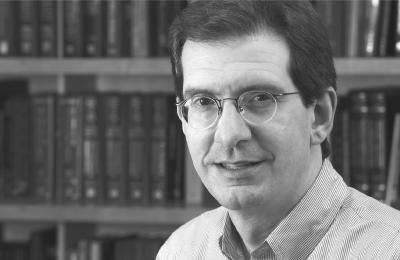August 19, 2004
Polyglutamine repeat diseases destroy neurons
In just a little over a decade, researchers have been able to identify mutations causing several hereditary neurodegenerative diseases, those that damage motor neurons, and in the process have shed considerable light on the mechanisms at work in more common conditions such as Parkinson’s disease and Lou Gehrig’s disease.
Dr. Albert La Spada was a graduate student at the University of Pennsylvania in 1991 when he identified a mutation known as a trinucleotide repeat expansion and linked it to spinal and bulbar muscular atrophy, also known as Kennedy’s disease. Basically, these trinucleotide repeat expansions are strings of extra nucleotides within proteins.
“We now believe they act by causing the proteins to misfold, so that they can’t function properly,” La Spada said. By now, more than 20 diseases have been linked to these repeat expansions. Nine have been identified as linked to repeat expansions of glutamine, and these diseases are known as polyglutamine repeat diseases. Huntington’s disease, long known to be inherited, is one of them.
In addition to Kennedy’s disease, La Spada’s lab at the UW is working on spinocerebellar ataxia type 7, another of the nine polyglutamine repeat diseases identified so far. His lab has developed models of these diseases in mice, useful both for studying disease progression and for testing possible interventions to stop the process.
In particular, La Spada is focusing on exactly how athe polyglutamine expansion in Kennedy’s disease causes specific motor neurons to fail.
This spring, La Spada and his colleagues published work revealing that levels of a growth factor in the spinal cords of mouse models for Kennedy’s disease dropped dramatically in the months before symptoms were obvious. His lab is now looking at ways to replace the growth factor.
“At this point, we’ve made incredible progress in our understanding of these diseases and how they develop,” he notes. “But we still don’t understand enough to come up with effective therapies. Our progress seems to move ahead by leaps and then we reach a plateau for a while, which is just characteristic of scientific discovery.”
Increasingly it seems that the discoveries made by studying these inherited neurodegenerative diseases may be applied to a whole gamut of similar diseases that have baffled researchers and physicians.
“There certainly does seem to be a theme here,” La Spada says, “as we see that all these diseases involve proteins that become misfolded aggregates. Even prion diseases such as mad cow disease have been identified as resulting from misfolded proteins, so we may get some clues from that research, too.
“Whatever causes the proteins to misfold, when they do that they basically ‘go bad,’ and that leads the neurons to falter and eventually die. We hope that if we understand exactly how this works in these diseases, we will be able to stop it, or at least control the amount of damage for enough years to make a difference.”
La Spada, associate professor of laboratory medicine, will present the first Science in Medicine Lecture of the 2004-05 academic year at noon on Thursday, Sept. 23, in room T-625 of the Health Sciences Center. His topic is “Deconstructing Polyglutamine Neurodegeneration: A Tale of Two Repeat Diseases.” The lecture is free and open to everyone.
Born in Philadelphia, La Spada earned a bachelor’s degree in biology, an M.D. degree and a Ph.D. in molecular biology from the University of Pennsylvania. After graduation, he came to the UW as a resident in laboratory medicine. His postgraduate training here included a clinical fellowship and a neurogenetics fellowship in the Division of Medical Genetics, and a postgrad fellowship in the Department of Pharmacology. He became an assistant professor in laboratory medicine in 2000, and also has adjunct appointments in the Department of Medicine’s Division of Medical Genetics and the Department of Neurology’s Division of Neurogenetics.
He is associate director of research development at the UW’s Center for Human Development and Disability and director of a new Center for Neurogenetics and Neurotherapeutics established last year. That new center will hold a major public symposium in October.



